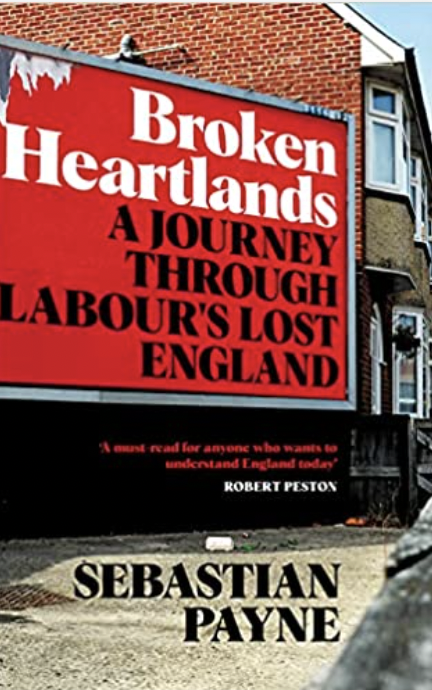
A critical political road-trip through ten constituencies that tell the story of Labour’s red wall crumbling and an exploration of how, in the election of December 2019 a seismic switch to the Tories took place, from Sebastian Payne, Financial Times, Whitehall Editor and an award winning journalist.
The red wall formed the foundation of Labour’s vote in the Midlands and the North of England but these places backed Brexit and then dramatically turned Conservatives for the first time in living memory at the 2019 election, re-mapping the electoral map in the process.
Payne who is from the North-East, originally set out to uncover the story of the red wall and issues that turned the seats blue. While Brexit and the unpopularity of opposition leader Jeremy Corbyn are factors, there is a more nuanced story explored in Broken Heartlands of How these northern communities have fared through general shifts, struggling public services, deindustrialisation and the changing nature of work. Payne highlights people from the red wall and their viewpoints of major political figures from both parties. Payne also explores the role of these social and economic forces, decades in making, have played in upheaving the political landscape.
Payne in Burnley Premier Inn interviewed Ed Millband over a Zoom connection from the former Labour leader’s North London home.
Broken Heartland is the search for the source of Labour’s decline in the Midlands and in the North of England, once bastions of the opposition party.
Paynes charts the decline map from Blyth Valley in the North East of England to South Yorkshire and down to Coventry. The interview with Angela Rayner, the deputy leader of the Labour Party, dramatises the problem.
Payne had a few pints with the Gateshead legend , café owner and guitarist Frank Tatoli, the man who took over Dominic’s café after an apprenticeship ran into ground, and an old school friend , Bruce.
According to Bruce, “ there is lot more genuine fear of Corbyn”. And what they think is that they liked Brexit and Boris Johnson and they really could not stand Jeremy Corbyn. The Labour Party was once rooted in the industrial sectors of the post-war economy. These jobs have gone now, and the axis of politics has shifted. Where once occupational status was a reliable guide to affiliation, in 2019, voters divided over a view of the nation in which they lived.
Payne notices that the private housing looks well-kept in north-east Derbyshire, and there are new industries flourishing in north-west Durham. There are enclaves of prosperity in all town, and lots of people voting Tory are doing quite well for themselves.
Best moments are when the people, rather than the politicians or the pundits speak.
Broken Heartlands: A Journey Through Labour’s Lost England by Sebastian Payne, Macmillan £20, 432 pages.
